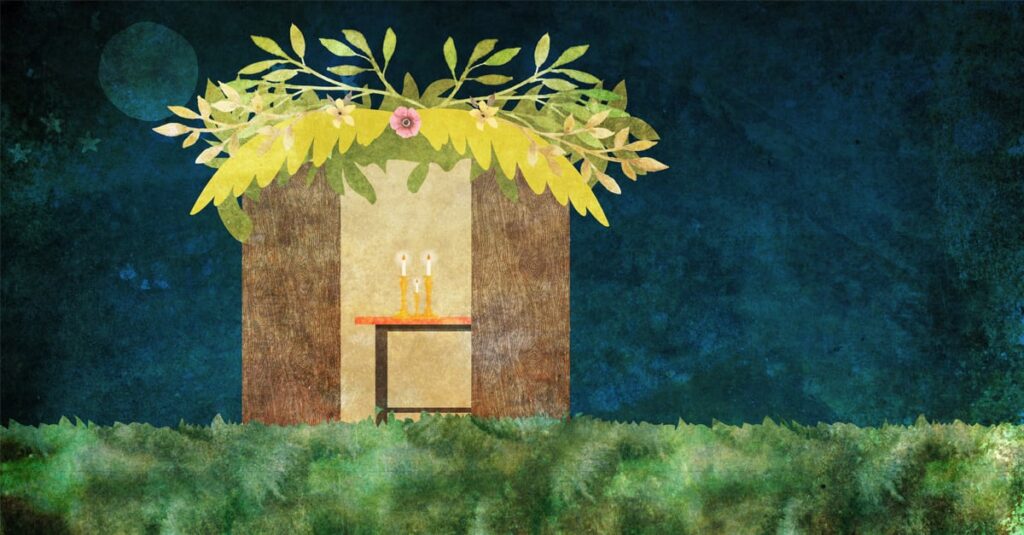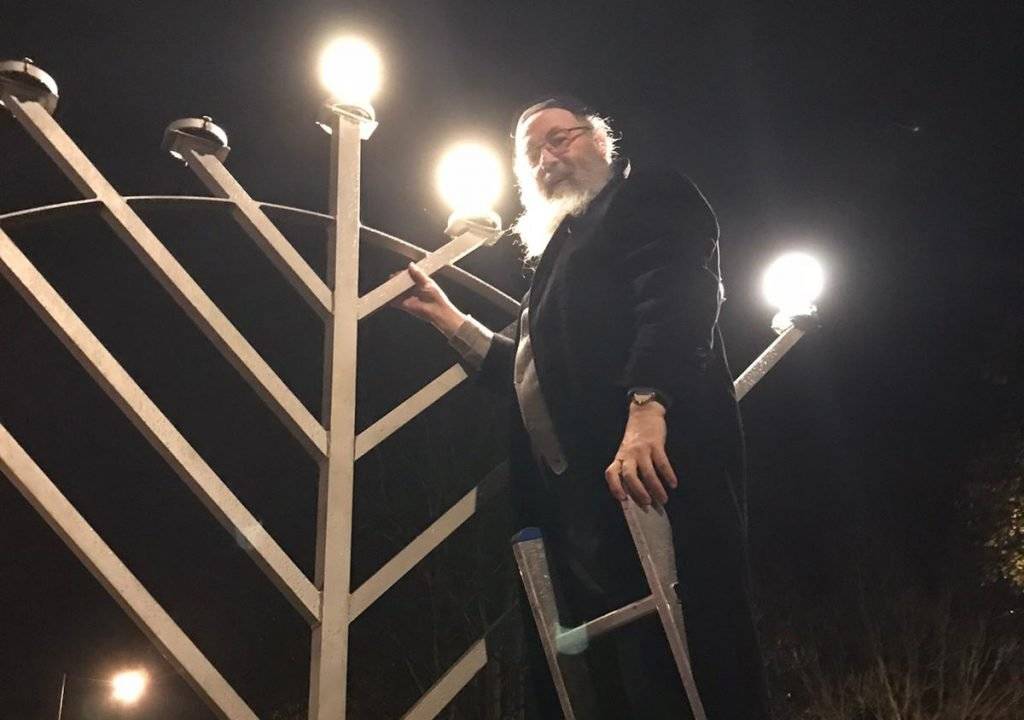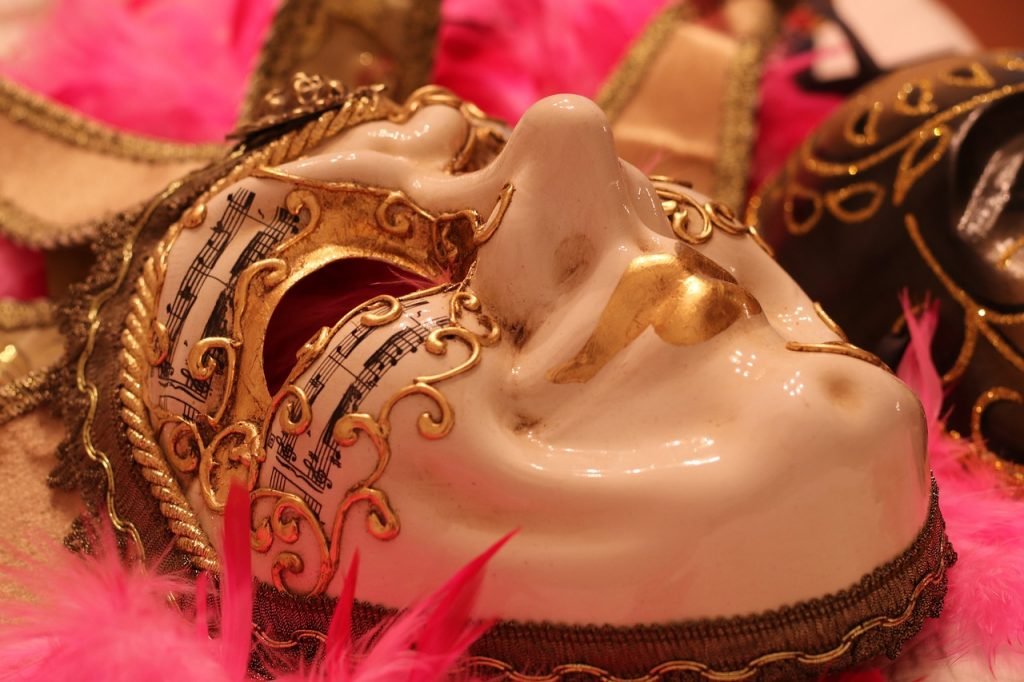Sukkot is a vibrant Jewish holiday observed around the world, marking the joyful harvest season and commemorating how G‑d protected the Israelites during their exodus from Egypt. Lasting for a week, Sukkot involves dwelling in leafy booths called “sukkahs” and taking part in a tradition known as the “Four Kinds,” which includes special plant species.
The Sukkot Timeline
- The holiday begins five days after Yom Kippur, with the first two days (September 29 to October 1, 2023) being yom tov, filled with candle lighting, Kiddush, and festive meals.
- The intermediate days, called Chol Hamoed (October 2 to October 6, 2023), are a time to stay in the sukkah and observe the Four Kinds.
- The final two days (October 6 to October 8, 2023) are Shemini Atzeret and Simchat Torah, a separate celebration in Israel.
- Meaning Behind Sukkot
Sukkot doesn’t commemorate a specific historical event but serves two key purposes. Chag HaAsif (Harvest Festival) expresses gratitude for the harvest, while Chag HaSukkot (Festival of Booths) recalls the temporary dwellings used by our ancestors during the Exodus.
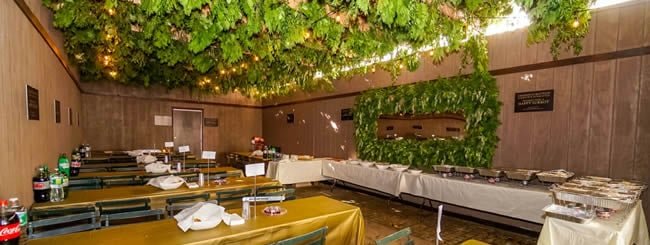
The Sukkah Experience
During Sukkot, we eat our meals in the sukkah, a three-walled structure with a natural vegetation roof. It’s a symbolic act of dwelling under the open sky, emphasising unity and humility.
Sukkot, a time of gratitude, unity, and celebration, is a cherished holiday in Brighton and beyond. Join us in sharing the joy and celebration of Sukkot at Chabad Brighton on the first night for a traditional meal in the Sukkah and an inspirational and uplifting service.
Taking the Four Kinds
The Four Kinds consist of an etrog (citron), a lulav (palm frond), three hadassim (myrtle twigs), and two aravot (willow twigs). These are taken, blessed, and waved in all directions, symbolising the diverse Jewish community’s unity.
Prayers and Celebrations
Every day, aside from Shabbat, we say Hallel (Psalms 113-118) while holding the Four Kinds during morning prayers. We also perform Hoshanot, circling the bimah and reciting prayers for Divine assistance.
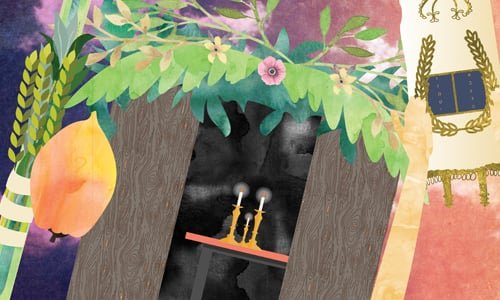
Hoshanah Rabbah
On Hoshanah Rabbah, the seventh day of Sukkot, our fates for the coming year are sealed. We circle the bimah seven times and strike the ground with willow bundles.
Temple Sacrifices
In ancient times, Sukkot involved significant sacrifices in the Temple, including 70 bulls symbolising the 70 nations.
Pilgrimage to Jerusalem
Sukkot is one of the Shalosh Regalim, requiring every male Jew to be in Jerusalem. The king would read from the Torah, including men, women, and children, during a gathering known as Hakhel.
Water Pouring Ceremony
Sukkot holds a special ceremony where water is poured over the Temple’s altar, fostering great joy, music, and dancing, known as “Simchat Beit Hasho’evah.”
Sukkot Celebrations
Nightly celebrations with singing and dancing continue throughout Sukkot, making it one of the most joyous Jewish holidays.
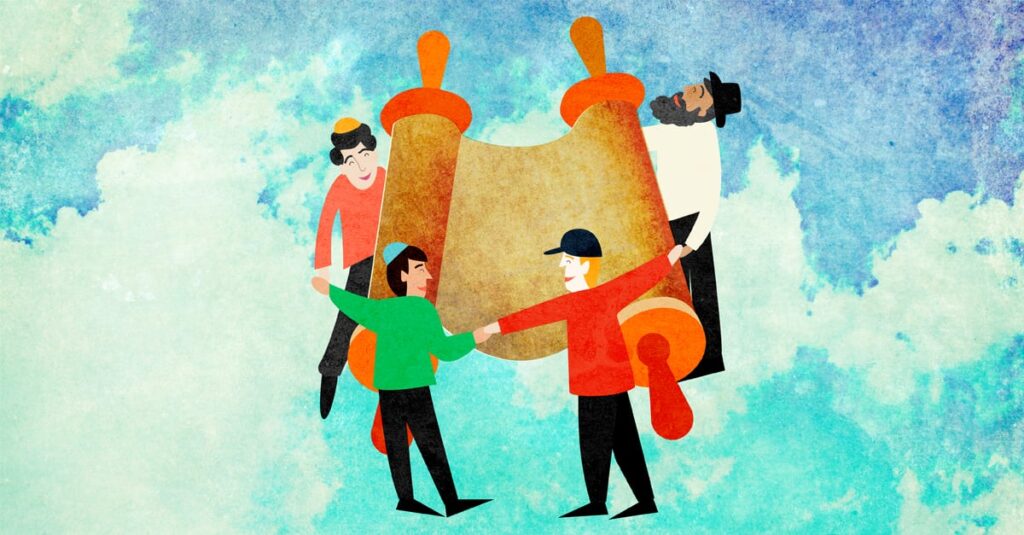
Simchat Torah
Following the seven days of Sukkot, the eighth day is Simchat Torah, marked by lively synagogue processions with Torah scrolls and festive singing and dancing.
Sukkot, a time of gratitude, unity, and celebration, is a cherished holiday in Brighton and beyond. We look forward to welcoming you to Chabad Brighton on the first night for a traditional meal in the Sukkah and an inspirational and uplifting service.

